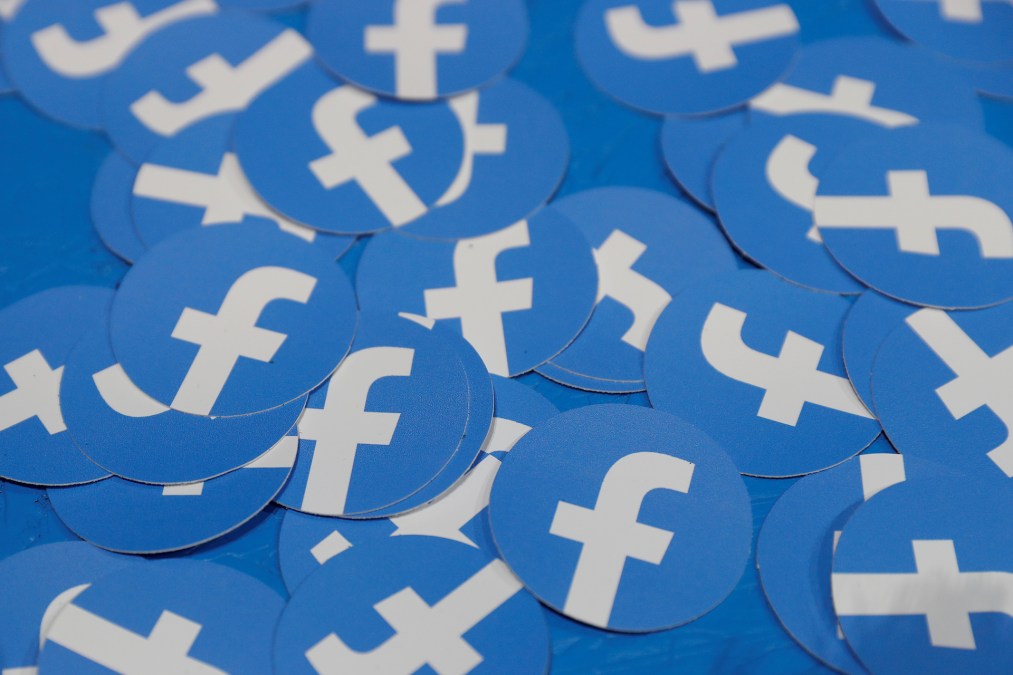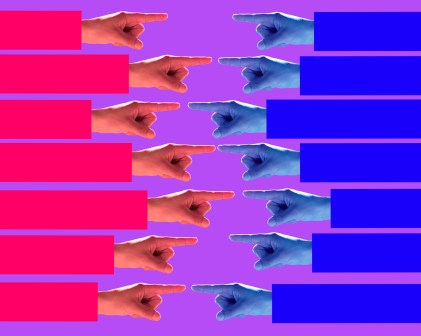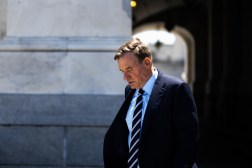Election-related misinformation is spilling into the real world. Just look at Arizona.

When a group of pro-Trump protesters surrounded an election center in Arizona in the wee hours of Thursday morning, demonstrators chanted slogans echoing manufactured narratives amplified by right wing social media users that the 2020 U.S. presidential election was somehow being stolen from President Donald Trump.
While calling for officials in Maricopa County to count the ballots, demonstrators parroted the baseless allegations, some of which were initiated by Trump, who earlier tweeted that “we are up BIG, but they are trying to STEAL the Election.”
In videos of the incident, protesters can be seen holding signs, at least one of which said, “Stop The Steal,” which appeared to be recycled from the hashtag #StopTheSteal, a hashtag that originally began spreading on Twitter on Election Day to suggest, without evidence, that officials somehow were defrauding Trump in Pennsylvania.
There is no evidence widespread election fraud has occurred, or that the election is being stolen, as officials continue to count votes throughout the country Thursday. Yet the Maricopa County incident appears to be emblematic of how election disinformation spread on social media is resulting in real-world action. While Facebook removed a Stop The Steal group with 350,000 followers Thursday, the onslaught of manufactured political narratives that has dominated the internet since Election Day has led to more questions about whether social media companies are doing enough to stop what researchers have described as an inevitable tidal wave of conspiracies after Nov. 3.
“If the president says something like ‘it’s being stolen’ … what we immediately see then is a huge number of people trying to create the conventional wisdom that that’s true,” Alex Stamos, the former chief security officer at Facebook, said Wednesday on a call with reporters hosted by the Election Integrity Partnership (EIP), a coalition of misinformation academics and researchers dedicated to ferreting out such efforts.
Politically-minded accounts are prone to using falsified evidence, misrepresenting facts, and other tactics to try to confirm baseless claims that support their beliefs, added Stamos, who now works at Stanford University.
The spillover
Some of the pro-Trump demonstrators that gathered in Maricopa County were protesting a now-debunked theory that was spread widely on social media platforms Wednesday that election officials in Arizona were disenfranchising voters by giving them sharpies instead of pens to cast their ballots, according to Arizona Mirror.
Maricopa County has assured voters that this rumor is false, and said officials were distributing sharpies because they are suited for their vote tabulators, adding that election officials are continuing to do their job amid the chaos. Vote-counting was still underway Thursday across the country, including in Maricopa County where election officials were livestreaming the counting.
The protesters, some of whom were armed, prompted Maricopa County to call on police to guard the election center. Journalists were escorted to their cars, and at least one protester threatened media, according to a local CBS affiliate.
The manifestation of the misinformation in the physical world is raising concerns about whether the incident in Maricopa County is a harbinger of what’s to come. Similar campaigns meant to discredit or question the integrity of the U.S. electoral process may also result in real-world violence.
It’s the kind of cascading effect social media companies have seen from election-related misinformation before. A group associated with the Russian government-run troll farm that sought to interfere in the 2016 U.S. presidential elections has previously corralled thousands of Americans into attending a march in the days after the election that year, for instance.
Twitter and Facebook have been issuing some policies meant to limit the spread of election disinformation in recent days from foreign and domestic sources alike, and in particular have been under a microscope for how they treat premature claims of electoral victory.
But the platforms may need to think more deeply about how they treat unfounded claims that Democrats are stealing the election, in part because of the number of supporters who latch on to the president’s claims with such fervor, says Stamos.
In one case, in an effort to suggest officials weren’t counting votes for Trump, Eric Trump shared a video on Twitter purportedly showing ballots being burned. The video does not, in fact show ballots being burned, officials say, and has since been deleted.
Researchers are also concerned that misinformation that is allowed to remain on Twitter and Facebook, even if it is quickly labeled, can spread far and wide and even trickle onto other platforms unfettered.
“If it was one tweet or one Facebook post that these [labels] could stop this information getting out into the world it would make a big difference,” Kate Starbird, an associate professor at the University of Washington, told reporters Wednesday. “But these are repeated things over time, it’s part of the campaign, it’s resonating across channels across platform and there’s an audience that’s already starting to believe it. At this point no matter how fast they take action, no matter what messages they put on it, those messages are getting out and landing on a soft audience. And they’re soaking it up.”





